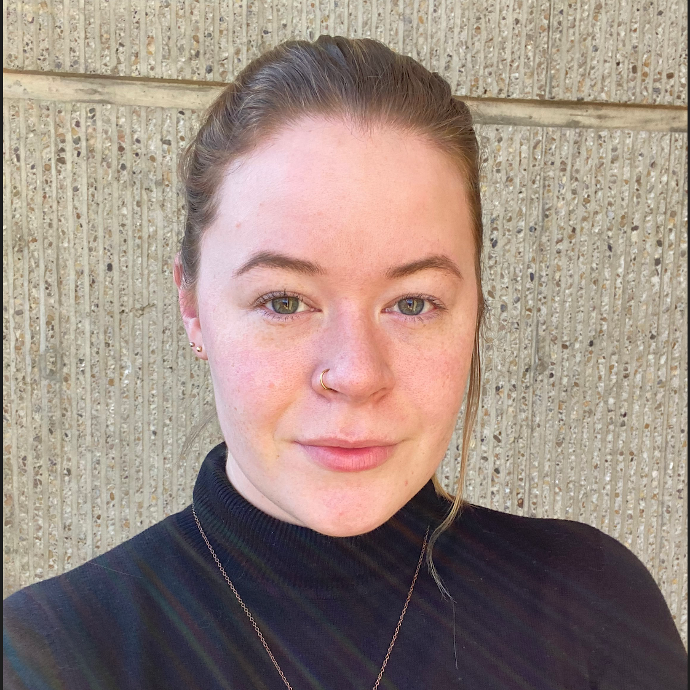Convocating law student speaks up for women’s issues, including taboo subjects
Sarah Kent - 5 June 2020

From researching women’s issues to organizing a speaker series, Megan Ferguson’s passion for feminism has been a constant during her time at the University of Alberta Faculty of Law, and she’s excited that the next stage of her career will draw on that passion.
“I’m very concerned with women’s issues, and criminal law brings up a lot more issues that affect women than some other areas of the law,” she said.
Ferguson, ‘20 JD, begins articling at Knisely Law, an Edmonton-based criminal defense firm, this month.
“A big part of why I wanted to work there is that they have a couple female defence lawyers,” said Ferguson, who believes female mentorship will play a big part in her success as a lawyer.
During law school, Ferguson was an active member of the Women’s Law Forum and was instrumental in organizing their speaker series for 2019-2020, “Bridging Feminism and Criminal Law.”
Ferguson is currently working on publishing her paper, “Bloody Hell: The Metaphysical Uncleanliness of Women while they Menstruate,” which was originally written for Professor Linda Reif’s International Human Rights Law course.
Ferguson was scheduled to present the paper at UAlberta’s Interdisciplinary Feminist, Gender and Sexuality Studies Undergraduate Conference in March, but the conference was cancelled due to COVID-19.
“Menstruation is still such a taboo subject, even in law school,” said Ferguson. “I want people to think critically about how they contribute to this menstrual taboo that has been causing so much grief to so many women for so many centuries.”
Ferguson’s paper addresses a gap in the Convention on the Elimination of All Forms of Discrimination Against Women, a treaty adopted by the United Nations in 1979 and ratified by almost every country in the world.
The convention covers women’s rights that may be violated while they are pregnant or lactating, but is silent regarding menstruation, says Ferguson.
Some women choose to modify their faith-based practices during menstruation, yet many women do not have a choice, as some religions disallow or modify the way women can access their faith during their menstrual periods.
It is a widespread problem that is not localized to a specific religion or culture.
“Megan has produced impressive and original scholarship on the relatively neglected international human rights of menstruating women to freedom of religion and nondiscrimination,” said Reif. “Her paper is a sophisticated analysis and critique of the shortcomings of the UN treaty regimes on women's rights and civil and political rights.”
“If people don’t start talking about it, it’s never going to be addressed,” said Ferguson, who will be editing her paper over the summer and looking for the right journal to share her research.
While Ferguson won’t be pursuing international human rights law as her area of practice, she sees a lot of overlap between it and criminal law.
“Criminal defence work is such a fantastic way to ensure peoples’ human rights are upheld.”